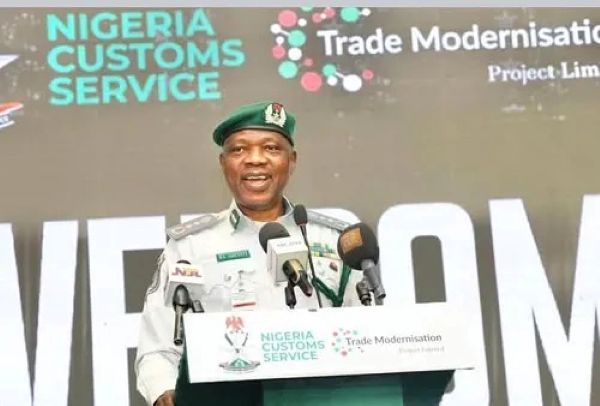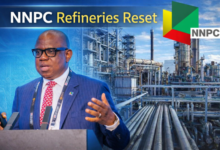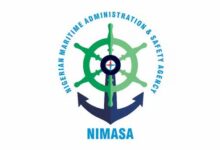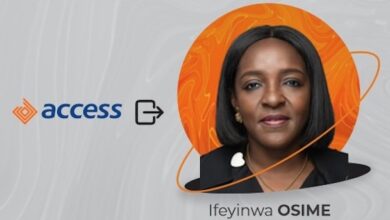Customs Fixes B’Odogwu Platform Glitch, Restores Product Certificate Transmission for Importers

The Nigeria Customs Service (NCS) has confirmed the full resolution of a technical disruption that hindered the seamless transmission of Product Certificates and SONCAP documents on the recently launched B’Odogwu digital trade platform, bringing much-needed relief to importers, customs agents, and port stakeholders.
The glitch, which affected the processing of Form M, Pre-Arrival Assessment Reports (PAAR), and Single Goods Declaration (SGD), had triggered delays in cargo clearance and heightened anxiety across Nigeria’s major ports, particularly among manufacturers and maritime logistics operators.
B’Odogwu Glitch: What Happened
According to a statement by NCS Comptroller-General, Bashir Adeniyi, released through the agency’s spokesman Abdullahi Maiwada, the glitch originated from technical integration issues during the onboarding of the Standards Organisation of Nigeria (SON) onto the B’Odogwu platform on July 23, 2025.
“The system-related issues temporarily disrupted accurate capturing of critical trade data including Form M, PAAR, and SGD,” Adeniyi said.
Key issues identified during the disruption included:
- Limited character space for trader names
- Incorrect data formatting
- Missing 10-digit product codes
- Ambiguous error messages
- Tax Identification Number (TIN) linkage failures
While NCS addressed most of the B’Odogwu Platform Glitch within its ecosystem, coordination with SON’s backend systems was necessary to fully restore end-to-end transmission.
System Now Fully Operational
As of Wednesday, August 6, Adeniyi confirmed that both NCS and SON have resolved the integration challenges, and product certification documents are now transmitting seamlessly through the B’Odogwu portal.
“The backlog of affected transactions is currently being cleared,” he assured.
The Customs boss also announced the nationwide rollout of the B’Odogwu platform across all zones (A, B, C, D), with trained technical support officers deployed across ports and border commands to guide users in real-time.
BRANDECONOMY INSIGHT: Tech Disruptions Reveal the Growing Pains of Digital Customs Reform
The disruption and its resolution highlight both the promise and pitfalls of Nigeria’s aggressive push toward trade digitalisation, which forms a key pillar of the NCS’s modernization roadmap.
The B’Odogwu Trade Portal, first piloted in May 2025 across three customs commands, aims to centralize and automate key trade procedures—reducing human interface, accelerating cargo clearance, and eliminating graft-prone bottlenecks.
Yet, this episode shows the complexity of synchronising data across multiple regulatory agencies, especially in an import ecosystem as fragmented as Nigeria’s.
What This Means for Importers and Freight Forwarders
The restoration of SONCAP and Product Certificate flows is crucial for:
- Clearing goods faster at ports
- Avoiding demurrage and storage penalties
- Maintaining compliance with pre-import documentation
- Ensuring inventory and production timelines stay on track
This is particularly important for industries like manufacturing, retail, construction, and pharmaceuticals, where import delays can disrupt entire supply chains.
Customs Assures Continued Stakeholder Support
Adeniyi reaffirmed NCS’s commitment to transparency, collaboration, and user training, noting that regular training sessions are ongoing at various customs commands to:
- Build stakeholder digital capacity
- Address technical challenges in real-time
- Gather feedback for continuous platform optimization
“We understand the critical role trade technology plays in national competitiveness and will continue to invest in building a resilient, user-friendly system,” he said.
Looking Ahead: Toward a Fully Integrated Trade Ecosystem
With the B’Odogwu platform now live nationwide, stakeholders say the next phase must focus on:
- Full integration with other trade-critical agencies like NAFDAC, NESREA, and SON
- Unified digital dashboards for end-to-end trade tracking
- Improved real-time support channels for importers and agents
- Establishment of a National Single Window for trade
Bottom Line: The restoration of SONCAP data flow on B’Odogwu is a welcome development for Nigeria’s import community, but it also reinforces the need for robust digital infrastructure, institutional coordination, and user education in achieving a modern, frictionless port system.












